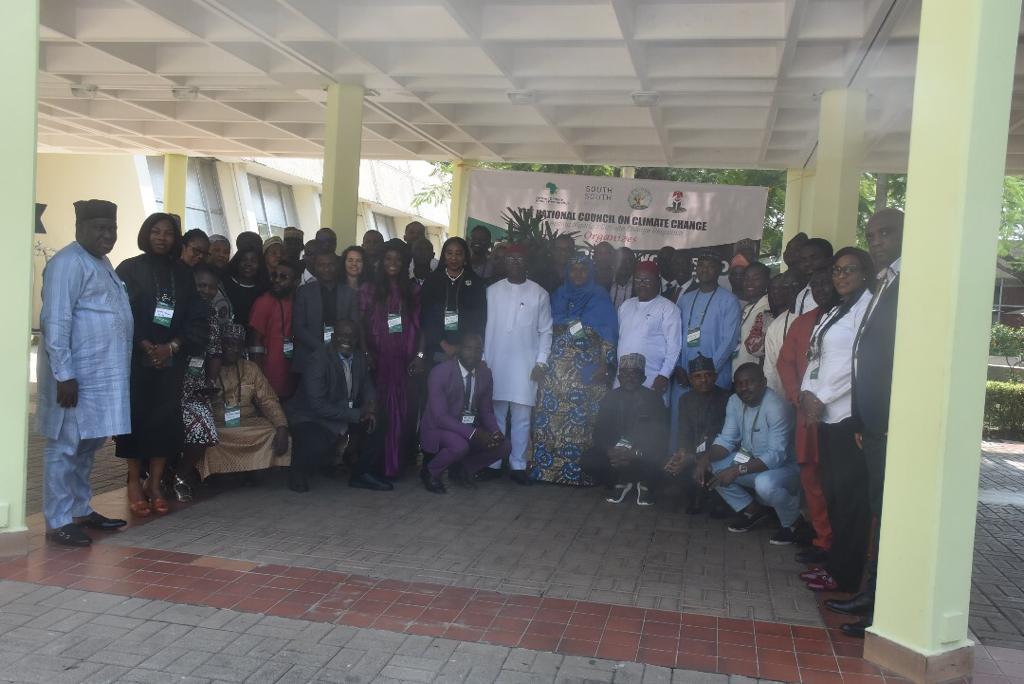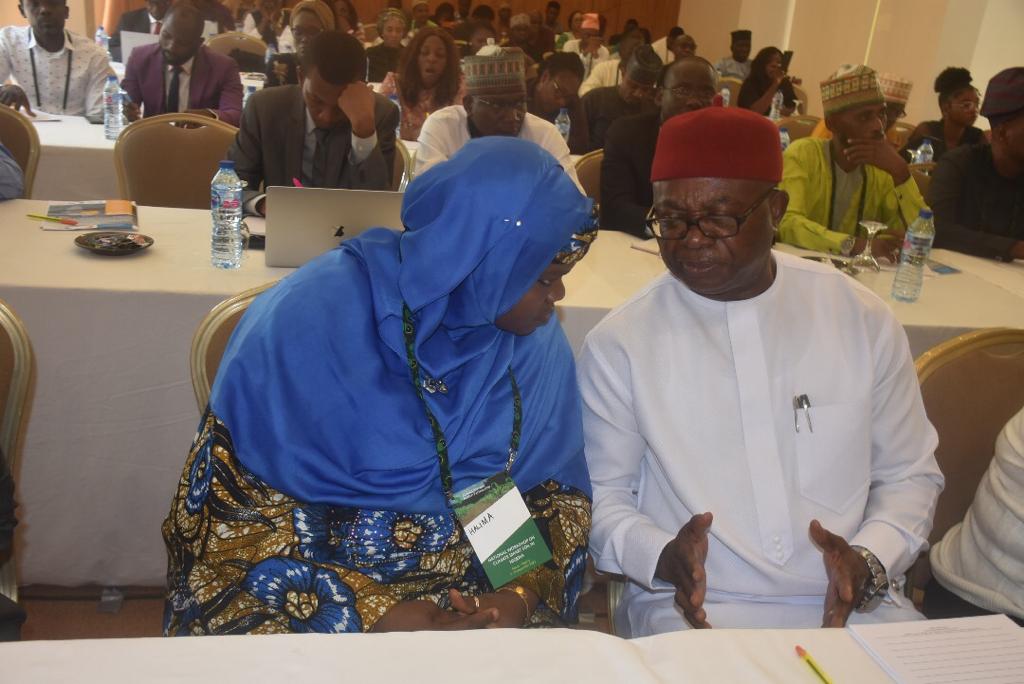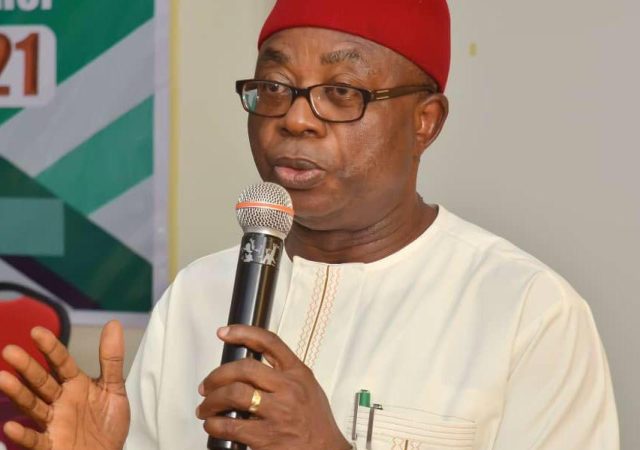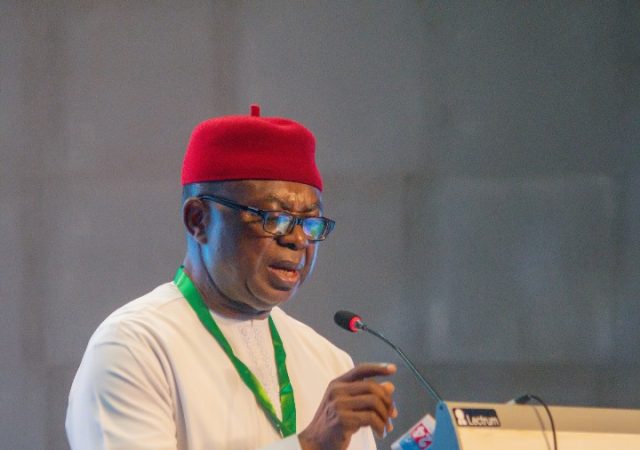
By Sam Onuigbo
I have spent years establishing how central climate action is to our future. Therefore, it is the only sustainable springboard to an assured future for us and our children.
- Today’s event organized by the National Council on Climate Change in collaboration with the African Climate Action Partnership, is extremely important because it recognizes the critical intersection between healthy soil, climate change, hunger, poverty, and the consequent diseases and insecurity that come from them. As we all know, without fertile soils, we cannot grow food, and without food, there will be hunger, loss of livelihood means for land-dependent people, displacement, forced migration, climate refugees, insecurity and conflict arising from competition for scarce resources.
- The United Nations has recognized the critical link between Climate Change and food security. The UN Resolution 68/212 of December 20, 2013, reaffirmed that “Climate Change is one of the greatest challenges of our time…, particularly developing countries are vulnerable to the adverse impacts… including persistent drought and extreme weather events, sea-level rise, coastal erosion and ocean acidification, further threatening food security and efforts to eradicate poverty and achieve sustainable development and in this regard emphasizes that adaptation to Climate Change represents an immediate and urgent global priority.”
- With an area of 923,769 square kilometers and an ever-increasing population of about 223million people, 70 percent of which depend on agriculture as a means of livelihood, the recurrent issues of losing arable land to desertification, erosion, drought, and unsustainable agriculture, forestry, and other land use (AFOLU) has opened up the country to the danger of food insecurity. As changes in temperature, precipitation, and extreme weather events continue to challenge our agricultural sector, sustainable soil management practices and initiatives aimed at increasing soil organic carbon sequestration hold the promise of addressing food security, mitigation, and adaptation challenges.
- President Bola Ahmed Tinubu GCFR, declared a state of emergency on food security on July 13, 2023, and immediately began putting in place measures to “increase the availability of arable land for farming which will immediately impact food output.” On August 21, 2023, President Tinubu created a Ministry of Agriculture and Food Security. On November 01, 2023, in clear demonstration of this administration’s resolve in “addressing challenges in our agricultural sector,” Vice-President Shettima in a meeting with Mr. Cary Fowler, US Special Envoy on Global Food Security declared, mechanization is absolutely essential, good quality seeds, fertilization, improved agricultural practices, smart agriculture, these are the solutions we seek because the whole mantra is on increase in yield…” I commend President Tinubu for these coordinated actions on ensuring food security.
- The degradation of our soils, especially in Africa, is a pressing concern that impacts not only our food security but also our ability to mitigate greenhouse gas emissions and adapt to a changing climate. According to the World Bank, the consequences of soil degradation have far-reaching effects, particularly for the agricultural sector which employs more than half of Africa’s workforce, and accounts for 30-40 percent of its GDP.
- Increasing the availability of arable land must start from climate-smart and sustainable soil practices which I am happy that this event is about. We can produce enough food to feed our nations, and the continent of Africa, attract foreign direct investment, earn foreign exchange and create employment. So, what we are doing here today, and what the potentialities are, provide an optimistic springboard for addressing some of the most germane challenges we face in the country. We, at the North East Development Commission (NEDC), fully understand this and are committed to playing our own role by prioritizing agriculture and tackling the challenges from Climate Change. I charge every other stakeholder to do the same as we strive to meet the goals set in our Nationally Determined Contribution (NDC) and promote climate-smart agriculture.
- As we formulate policies, seek training in technology and knowledge, and develop action plans to drive this ambition, we should also remember that the only way we can succeed is by taking these policies down to the grassroots through the involvement and collaboration of the subnational and local government levels. As a rule, we must remember that vertical integration of ideas and policies is key, and therefore it must be vigorously applied.
- Yet, I must stress that there is no way we can attain success without collaborations. I have often spoken about the need to break the silo system in the country so that Ministries, Departments, and Agencies, and even the private sector and civil society can work in synergy without ugly competition. Let us embrace the philosophy of working together for a common purpose— the greatness of Nigeria, and the happiness and wellbeing of Nigerians and all Africans.
- Again, I thank the National Council on Climate Change for giving me a platform to speak more to the climate change vision in Nigeria. Many thanks also go to the African Climate Action Partnership (AfCAP) Secretariat for inviting me. We all share the same vision, and I will always be your partner in anything that upholds the greatness of Nigeria and the prosperity of the African continent.
- I thank you for your attention and precious time

Being an address of Governing Board Member and Chairman Committee on Security, Special Interventions, and Climate Change, of the North East Development Commission (NEDC), Hon. Sam Onuigbo at the 2-day regional workshop on climate smart soil practices for improved food security held in Abuja on 7-8 November, 2023









